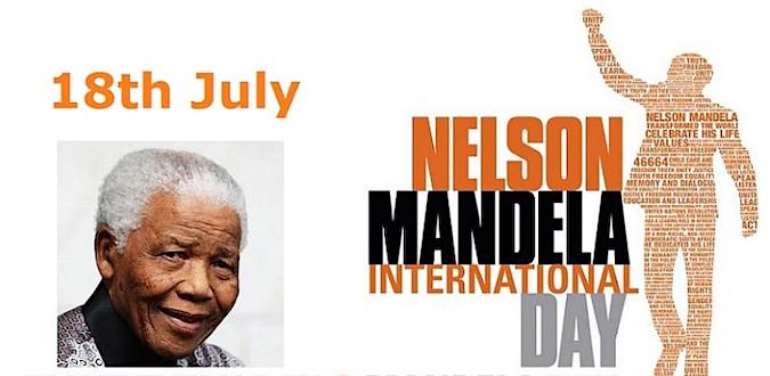Quotes From Nelson Mandela Lecture: “tackling The Inequality Pandemic: A New Social Contract For A New Era”

On COVID-19 and inequality:
The pandemic has demonstrated the fragility of our world. It has laid bare risks we have ignored for decades: inadequate health systems; gaps in social protection; structural inequalities; environmental degradation; the climate crisis.
COVID-19 has been likened to an x-ray, revealing fractures in the fragile skeleton of the societies we have built.
It is exposing fallacies and falsehoods everywhere: the lie that free markets can deliver healthcare for all; the fiction that unpaid care work is not work; the delusion that we live in a post-racist world; the myth that we are all in the same boat. Because while we are all floating on the same sea, it’s clear that some are in superyachts while others are clinging to the floating debris.
On the United Nations and inequality:
The vision and promise of the United Nations is that food, healthcare, water and sanitation, education, decent work and social security are not commodities for sale to those who can afford them, but basic human rights to which we are all entitled. We work to reduce inequality, every day, everywhere. That vision is as important today as it was 75 years ago.
On racism and the legacy of colonialism:
The anti-racism movement that has spread from the United States around the world in the aftermath of George Floyd’s killing is one more sign that people have had enough: enough of inequality and discrimination that treats people as criminals on the basis of their skin colour; enough of the structural racism and systematic injustice that deny people their fundamental human rights.
The legacy of colonialism still reverberates. We see this in economic and social injustice, the rise of hate crimes and xenophobia; the persistence of institutionalized racism and white supremacy.
On colonialism and Africa:
It has been a double victim. First, as a target of the colonial project. Second, African countries are under-represented in the international institutions that were created after the Second World War, before most of them had won independence.
On inequality in global governance:
The nations that came out on top more than seven decades ago have refused to contemplate the reforms needed to change power relations in international institutions. The composition and voting rights in the United Nations Security Council and the boards of the Bretton Woods system are a case in point. Inequality starts at the top: in global institutions. Addressing inequality must start by reforming them.
On patriarchy:
We live in a male-dominated world with a male-dominated culture. Everywhere, women are worse off than men, simply because they are women. Inequality and discrimination are the norm. Violence against women, including femicide, is at epidemic levels.
On inequality and technology:
The heavily male-dominated tech industry is not only missing out on half the world’s expertise and perspectives. It is also using algorithms that could further entrench gender and racial discrimination. The digital divide reinforces social and economic divides, from literacy to healthcare, from urban to rural, from kindergarten to college.
On climate inequality:
Today’s young climate protestors are on the frontlines of the fight against inequality.
We call not only for climate action, but climate justice.
Political leaders must raise their ambition, businesses must raise their sights, and people everywhere must raise their voices. There is a better way, and we must take it.
On the need for a New Social Contract:
A New Social Contract within societies will enable young people to live in dignity; will ensure women have the same prospects and opportunities as men; and will protect the sick, the vulnerable, and minorities of all kinds.
Education and digital technology must be two great enablers and equalizers.
The New Social Contract, between Governments, people, civil society, business and more, must integrate employment, sustainable development and social protection, based on equal rights and opportunities for all.
On the need for a New Global Deal:
We need a New Global Deal to ensure that power, wealth and opportunities are shared more broadly and fairly at the international level.
A new model for global governance must be based on full, inclusive and equal participation in global institutions.
The developing world must have a far stronger voice in global decision-making.
On the way forward:
The response to the pandemic, and to the widespread discontent that preceded it, must be based on a New Social Contract and a New Global Deal that create equal opportunities for all and respect the rights and freedoms of all.
We see the beginnings of a new movement. This movement rejects inequality and division, and unites young people, civil society, the private sector, cities, regions and others behind policies for peace, our planet, justice and human rights for all. It is already making a difference.
